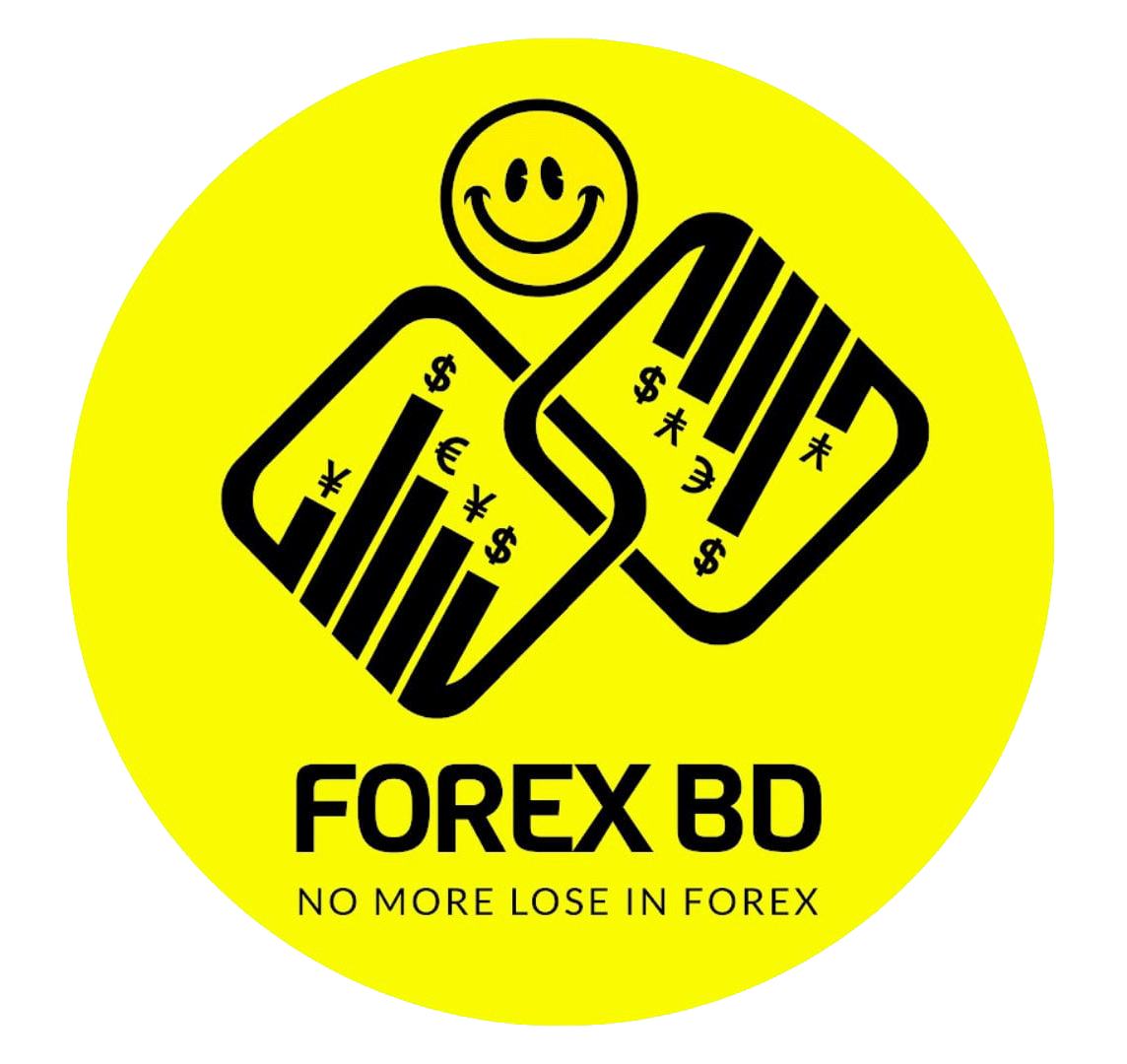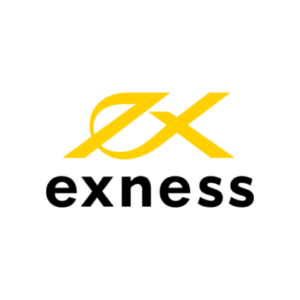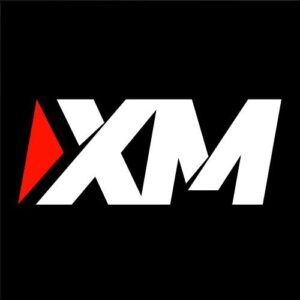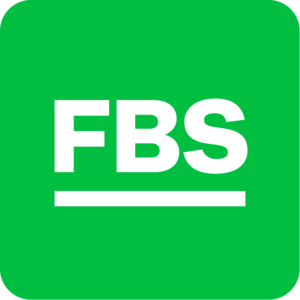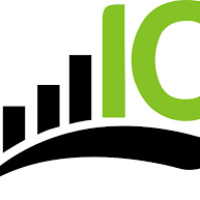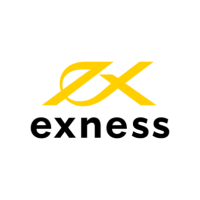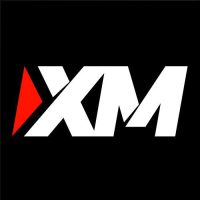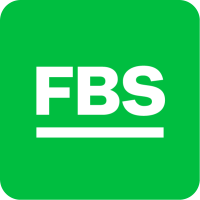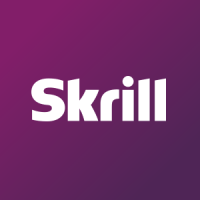How does a Swap-Free Forex Account Work?
Forex trading involves buying and selling currencies, and it is one of the most popular investment options in the financial market. However, for some traders, religious beliefs or cultural traditions may prohibit them from earning or paying interest, which is a common practice in forex trading. In such cases, swap-free forex accounts offer a viable alternative that allows traders to participate in the forex market without violating their beliefs. In this article, we will explore the concept of swap-free forex accounts and how they work.
Table of Contents
- What is a Swap-Free Forex Account?
- How Does a Swap-Free Forex Account Work?
- Advantages of Swap-Free Forex Accounts
- Drawbacks of Swap-Free Forex Accounts
- Eligibility for Swap-Free Forex Accounts
- Comparison of Swap-Free Forex Accounts and Regular Forex Accounts
- How to Open a Swap-Free Forex Account
- Choosing the Right Broker for Swap-Free Forex Trading
- Risks of Swap-Free Forex Trading
- Tips for Successful Swap-Free Forex Trading
- Conclusion
- FAQs
1. What is a Swap-Free Forex Account?
A swap-free forex account is a type of trading account that does not charge or pay any interest on positions held overnight. In regular forex trading accounts, positions held overnight incur interest charges, which are referred to as swaps. The swap rates vary depending on the currency pair, market conditions, and the broker. However, in swap-free forex accounts, the swap charges are waived to accommodate traders who cannot earn or pay interest due to their religious beliefs or cultural traditions.
2. How Does a Swap-Free Forex Account Work?
In a swap-free forex account, the interest charges or swaps are replaced by a fixed commission or administrative fee, which is charged on the open positions held overnight. The commission is usually a fixed percentage of the notional value of the trade and may vary from broker to broker. The administrative fee compensates the broker for the cost of holding the position overnight, and it is usually charged daily or weekly, depending on the broker’s policy.
3. Advantages of Swap-Free Forex Accounts
Swap-free forex accounts offer several advantages to traders who cannot participate in regular forex trading accounts that charge or pay interest. These advantages include:
3.1. Compliance with Religious and Cultural Beliefs
Swap-free forex accounts accommodate traders who cannot earn or pay interest due to their religious beliefs or cultural traditions. For example, Islamic law prohibits the charging or paying of interest, and swap-free forex accounts offer a compliant alternative.
3.2. Cost-Effective Trading
Swap-free forex accounts offer cost-effective trading since the administrative fee is usually lower than the cumulative swap charges on positions held overnight.
3.3. Transparency
Swap-free forex accounts offer transparency in trading since the administrative fee is fixed and does not vary with market conditions or the broker’s discretion.
4. Drawbacks of Swap-Free Forex Accounts
Swap-free forex accounts also have some drawbacks that traders should consider before opting for them. These drawbacks include:
4.1. Higher Spreads
Swap-free forex accounts may have higher spreads than regular forex accounts since the brokers may adjust the spreads to compensate for the waived swap charges.
4.2. Limited Availability
Swap-free forex accounts may not be available with all brokers or may be available only to specific types of traders.
5. Eligibility for Swap-Free Forex Accounts
Swap-free forex accounts are available to traders who cannot earn or pay interest due to their religious beliefs or cultural traditions. However, traders must provide proof of their eligibility, such as a declaration of their religious beliefs or cultural traditions.
6. Comparison of Swap-Free Forex
Accounts and Regular Forex Accounts Swap-free forex accounts differ from regular forex accounts in several ways, including:
6.1. Interest Charges
In regular forex accounts, positions held overnight incur interest charges, which are referred to as swaps. In contrast, swap-free forex accounts do not charge or pay any interest on positions held overnight.
6.2. Commission or Administrative Fee
Swap-free forex accounts replace the interest charges with a fixed commission or administrative fee, which is charged on the open positions held overnight.
6.3. Spreads
Swap-free forex accounts may have higher spreads than regular forex accounts since brokers may adjust the spreads to compensate for the waived swap charges.
6.4. Availability
Swap-free forex accounts may not be available with all brokers or may be available only to specific types of traders who cannot earn or pay interest due to their religious beliefs or cultural traditions.
7. How to Open a Swap-Free Forex Account
Opening a swap-free forex account is similar to opening a regular forex account, except that traders must provide proof of their eligibility for a swap-free account. Traders can follow these steps to open a swap-free forex account:
7.1. Research Brokers
Traders should research brokers that offer swap-free forex accounts and compare their terms and conditions, trading platforms, and regulatory compliance.
7.2. Choose a Broker
Traders should choose a broker that meets their requirements and provides a swap-free forex account that suits their trading style.
7.3. Provide Proof of Eligibility
Traders must provide proof of their eligibility for a swap-free forex account, such as a declaration of their religious beliefs or cultural traditions.
7.4. Open the Account
Traders can open a swap-free forex account by filling out the account opening form, providing the necessary documents, and funding their account.
8. Choosing the Right Broker for Swap-Free Forex Trading
Choosing the right broker for swap-free forex trading is crucial for successful and compliant trading. Traders should consider the following factors when selecting a broker:
8.1. Regulatory Compliance
Traders should choose a broker that is regulated by reputable financial authorities to ensure their funds’ safety and fair trading practices.
8.2. Trading Platforms
Traders should choose a broker that provides reliable and user-friendly trading platforms that suit their trading style.
8.3. Customer Support
Traders should choose a broker that provides excellent customer support, including live chat, phone, and email support, and quick response times.
8.4. Swap-Free Account Terms and Conditions
Traders should read and understand the swap-free account terms and conditions, including the commission or administrative fee, spreads, and eligibility requirements.
9. Risks of Swap-Free Forex Trading
Swap-free forex trading carries some risks that traders should consider before opening a swap-free forex account. These risks include:
9.1. Market Risk
Swap-free forex trading carries market risk, including price fluctuations, volatility, and liquidity risk, which may result in losses.
9.2. Counterparty Risk
Swap-free forex trading carries counterparty risk, including the risk of default by the broker or the liquidity provider, which may result in losses.
9.3. Operational Risk
Swap-free forex trading carries operational risk, including system outages, internet connectivity issues, and trading errors, which may result in losses.
10. Tips for Successful Swap-Free Forex Trading
Traders can follow these tips for successful swap-free forex trading:
10.1. Risk Management
Traders should use proper risk management techniques, such as stop-loss orders, position sizing, and diversification, to mitigate market
Apologies for the previous message. Here’s the continuation of the article:
10. Tips for Successful Swap-Free Forex Trading
Traders can follow these tips for successful swap-free forex trading:
10.1. Risk Management
Traders should use proper risk management techniques, such as stop-loss orders, position sizing, and diversification, to mitigate market, counterparty, and operational risks.
10.2. Technical Analysis
Traders should use technical analysis tools and indicators to identify entry and exit points, support and resistance levels, and trend reversals.
10.3. Fundamental Analysis
Traders should use fundamental analysis tools and news events to stay informed about the macroeconomic and geopolitical factors that affect the currency pairs they trade.
10.4. Trading Psychology
Traders should maintain a disciplined and patient mindset, avoid emotional trading decisions, and stick to their trading plan.
11. Conclusion
Swap-free forex accounts are designed for traders who cannot earn or pay interest due to their religious beliefs or cultural traditions. These accounts waive the overnight swap charges and replace them with a fixed commission or administrative fee. However, swap-free forex trading carries some risks, such as market, counterparty, and operational risks, which traders should manage with proper risk management techniques. Moreover, traders should choose the right broker, use technical and fundamental analysis, and maintain a disciplined trading psychology to succeed in swap-free forex trading.
12. FAQs
12.1. Are swap-free forex accounts suitable for all traders?
No, swap-free forex accounts are suitable only for traders who cannot earn or pay interest due to their religious beliefs or cultural traditions.
12.2. Can I open a swap-free forex account with any broker?
No, swap-free forex accounts may not be available with all brokers or may be available only to specific types of traders.
12.3. Does swap-free forex trading carry any risks?
Yes, swap-free forex trading carries some risks, such as market, counterparty, and operational risks.
12.4. How can I manage the risks of swap-free forex trading?
Traders can manage the risks of swap-free forex trading by using proper risk management techniques, such as stop-loss orders, position sizing, and diversification.
12.5. What are the tips for successful swap-free forex trading?
The tips for successful swap-free forex trading include using proper risk management techniques, technical and fundamental analysis, and maintaining a disciplined trading psychology.
Name
Details
Rating
Regulation: CySEC, FCA, DFSA, FSCA, FSA, CMA
Founded: 2008
Founders: Petr Valov, Igor Lychagov
Year Founded : 2008
Deposit Methods: VISA, MasterCard, Neteller, Skrill, WM, PM, Crypto (MORE)
Leverage: 1:30 | 1:500
Regulation: CySEC, FCA, DFSA, FSCA, FSA.
Min. Deposit: 5 US$
Min. Withdraw : 5 US$
HQ: Sydney, Australia
Platforms: MT4, MT5, ctrader, web trading
Found in: January 30, 2007
Deposit Methods: Bank Wire (BankTransfer), VISA, MasterCard, Neteller, Skrill, WM, PM, Crypto
Year Founded : 2010
Cryptocurrencies:
 Yes
YesDeposit Methods: Local Deposit, Bank Wire (BankTransfer), VISA, MasterCard, Neteller, Skrill, WM, PM, Crypto, USDT
Year Founded : 2010
Cryptocurrencies: (5+) Bitcoin, Litecoin, Ethereum
Deposit Methods: Local Deposit, Bank Wire (BankTransfer), VISA, MasterCard, Neteller, Skrill, WM, PM, Crypto, USDT (MORE)
Year Founded : 2009
Cryptocurrencies:



Deposit Methods: Bank Wire (BankTransfer/SWIFT), VISA, MasterCard, Alipay, Bitcoin, Bitcoin Cash, Boleto, Ether/Ethereum, Litecoin, Local Bank Deposits, M-Pesa, Mobile Money, Monero, PerfectMoney, Ripple, WebMoney
Year Founded : 2009
Cryptocurrencies:



Deposit Methods: Local Deposit, Bank Wire (BankTransfer), VISA, MasterCard, Neteller, Skrill, WM, PM, Crypto, USDT
Year Founded : 2009
Cryptocurrencies:



Deposit Methods: Bank Wire (BankTransfer/SWIFT), VISA, MasterCard, Alipay, Bitcoin, Bitcoin Cash, Boleto, Ether/Ethereum, Litecoin, Local Bank Deposits, Mobile Money, PerfectMoney, WebMoney, USDT
Year Founded : 2011
Cryptocurrencies: (25+) Bitcoin, Litecoin, Ethereum
Deposit Methods: Bank Deposit, VISA, awepay, Bitcoin, FasaPay, Local Bank Deposits, Local Bank Transfers, Neteller, paytm, Skrill, UnionPay, USDT
Leverage: 1:20 | 1:500
Regulation: CySEC, FCA, DFSA, FSCA, FSA.
Min. Deposit: 50 US$
Min. Withdraw : 50 US$
HQ: Australia, Cyprus, and the UK.
Platforms: MT4, cTrader, web trading
EAs/Robots: ✅ Yes | News Trading: ✅ Yes | Scalping: ✅ Yes
Cryptocurrencies: 20+) Bitcoin, Litecoin, Ethereum
Deposit Methods: Local Deposit, Bank Wire (BankTransfer), VISA, MasterCard, Neteller, Skrill, Crypto. USDT
Leverage: 1:20 | 1:500
Regulation: CySEC, FCA, DFSA, FSCA, FSA.
Min. Deposit: 100 US$
Min. Withdraw : 100 US$
HQ: Cyprus, the UK, Australia, and the United States.
Platforms: MT4, cTrader, web trading
EAs/Robots: ✅ Yes | News Trading: ✅ Yes | Scalping: ✅ Yes
Cryptocurrencies: 20+) Bitcoin, Litecoin, Ethereum
Deposit Methods: Local Deposit, Bank Wire (BankTransfer), VISA, MasterCard, Neteller, Skrill, Crypto. USDT
Leverage: 1:20 | 1:500
Regulation: CySEC, FCA, DFSA, FSCA, FSA.
Min. Deposit: 50 US$
Min. Withdraw : 50 US$
HQ: Australia, Cyprus, and the UK.
Platforms: MT4, cTrader, web trading
EAs/Robots: ✅ Yes | News Trading: ✅ Yes | Scalping: ✅ Yes
Cryptocurrencies: 20+) Bitcoin, Litecoin, Ethereum
Deposit Methods: Local Deposit, Bank Wire (BankTransfer), VISA, MasterCard, Neteller, Skrill, Crypto. USDT
Year Founded : 2010
Cryptocurrencies:



Deposit Methods: Local Deposit, Bank Wire (BankTransfer), VISA, MasterCard, Neteller, Skrill, WM, PM, Crypto, USDT
A Forex broker is a financial services company that provides traders with access to the foreign exchange market. The primary function of a Forex broker is to facilitate the buying and selling of currencies by acting as an intermediary between the trader and the market ( Forex BD / BD Forex / ForexBD / ForexBDLTD / Forex bd LTD / @forexbd )..
Forex brokers offer traders a variety of services, including trading platforms, market analysis, and educational resources. They also provide access to leverage, which allows traders to control larger positions with a smaller amount of capital.
Forex brokers can operate in different ways, such as market makers, which set their own bid and ask prices and take the opposite side of their clients’ trades, or as agency brokers, which pass their clients’ orders directly to the market without any intervention.
Choosing a reliable and trustworthy Forex broker is important for traders to ensure that they receive fair and transparent pricing, access to a range of financial instruments, and adequate customer support ( Forex BD / BD Forex / ForexBD / ForexBDLTD / Forex bd LTD / @forexbd )..
Forex brokers play an important role in the foreign exchange market by providing liquidity and enabling traders to participate in the market with ease. Forex brokers offer a wide range of services and tools to traders, including:
Trading Platforms: Forex brokers provide traders with access to trading platforms that allow them to place trades, analyze the market, and manage their trading accounts.
Market Analysis: Forex brokers offer traders access to market analysis, including news, research, and economic data. This can help traders make informed decisions about when to enter or exit the market.
Educational Resources: Forex brokers often provide educational resources, such as webinars, videos, and tutorials, to help traders improve their trading skills and knowledge.
Leverage: Forex brokers offer traders access to leverage, which allows traders to control larger positions with a smaller amount of capital. However, it’s important to note that leverage can increase both potential profits and losses.
Customer Support: Forex brokers provide customer support to help traders with any questions or issues they may have ( Forex BD / BD Forex / ForexBD / ForexBDLTD / Forex bd LTD / @forexbd )..
When choosing a Forex broker, traders should consider factors such as the broker’s reputation, regulation, trading conditions, fees and commissions, and customer support. It’s important to choose a broker that is reliable, transparent, and offers competitive pricing and trading conditions.
Forex brokers provide traders with access to various types of trading platforms, each with its own unique features and advantages. Here are some of the most common types of Forex broker platforms:
MetaTrader 4 (MT4): MT4 is one of the most popular Forex trading platforms, used by millions of traders worldwide. It is known for its user-friendly interface, extensive charting tools, and support for automated trading through Expert Advisors (EAs) ( Forex BD / BD Forex / ForexBD / ForexBDLTD / Forex bd LTD / @forexbd )..
MetaTrader 5 (MT5): MT5 is the newer version of MT4 and offers additional features and improvements, such as more advanced charting tools, additional order types, and support for more financial instruments.
cTrader: cTrader is a trading platform that offers advanced charting tools, support for automated trading, and fast order execution. It is known for its user-friendly interface and customization options.
WebTrader: WebTrader is a browser-based trading platform that allows traders to access the market from any device with an internet connection. It is a popular choice for traders who prefer a simple and easy-to-use platform ( Forex BD / BD Forex / ForexBD / ForexBDLTD / Forex bd LTD / @forexbd )..
Mobile Trading Platforms: Forex brokers also offer mobile trading platforms that allow traders to access the market and manage their positions from their smartphones or tablets. These platforms typically offer a range of features, including real-time quotes, charts, and news updates.
When choosing a Forex broker platform, it’s important to consider factors such as ease of use, charting tools, order types, automated trading options, customization options, and compatibility with your trading style and strategy. Ultimately, the best platform for you will depend on your individual needs and preferences as a trader.
Forex brokers can be categorized into different types based on their business model and the services they offer to their clients. Here are some of the most common types of Forex brokers ( Forex BD / BD Forex / ForexBD / ForexBDLTD / Forex bd LTD / @forexbd ). :
Dealing Desk (DD) Brokers: Dealing Desk brokers, also known as market makers, act as counterparties to their clients’ trades. They provide liquidity to the market by taking the opposite side of their clients’ trades, and may also offer fixed spreads, guaranteed stop-loss orders, and other risk management tools.
No Dealing Desk (NDD) Brokers: No Dealing Desk brokers do not act as counterparties to their clients’ trades, but instead route their orders directly to liquidity providers, such as banks, financial institutions, and other brokers. NDD brokers typically offer variable spreads and faster order execution speeds than DD brokers.
Electronic Communication Network (ECN) Brokers: ECN brokers are similar to NDD brokers, but instead of routing orders to a single liquidity provider, they connect their clients to a network of liquidity providers, which compete to offer the best bid and ask prices. ECN brokers typically charge a commission for their services, but offer some of the tightest spreads and fastest order execution speeds in the market.
Straight Through Processing (STP) Brokers: STP brokers are similar to NDD brokers, but instead of routing orders directly to liquidity providers, they use automated systems to execute orders based on pre-defined trading rules. STP brokers may offer variable or fixed spreads, and may charge a commission or markup on their services.
Hybrid Brokers: Hybrid brokers combine elements of different business models, such as acting as both a market maker and an ECN broker, or offering both fixed and variable spreads. Hybrid brokers may offer a range of services and account types to meet the needs of different types of traders.
When choosing a Forex broker, it’s important to consider the broker’s business model and the services they offer, as well as their reputation, regulation, and customer support. The best broker for you will depend on your individual needs and trading style, as well as the trading conditions and fees offered by the broker.
Forex trading is a popular financial activity that involves buying and selling currencies to profit from the fluctuations in exchange rates. As with any financial activity, it is essential to choose a reputable and regulated broker to ensure the safety of your funds and a fair trading environment. In this article, we will discuss some of the top regulated forex broker houses.
Online forex trading payment methods refer to the various payment options available for forex traders to deposit or withdraw funds from their trading accounts. In the world of forex trading, payment methods play a vital role in facilitating smooth transactions, and it is important to choose a secure and reliable payment method that suits your needs.
Like, Share & Subscribe to Our Official Sites
Contact with Us :
Copyright © 2023 Forex BD
Risk Warning: Trading on financial markets carries risks. Contracts for Difference (‘CFDs’) are complex financial products that are traded on margin. Trading CFDs carries a high level of risk since leverage can work both to your advantage and disadvantage. As a result, CFDs may not be suitable for all investors because you may lose all your invested capital. You should not risk more than you are prepared to lose. Before deciding to trade, you need to ensure that you understand the risks involved and take into account your investment objectives and level of experience.
Disclaimer : Forexbd.ltd is not encouraging anyone to do forex/stock trading, as there are investments and financial risks involved. ForexBD channel or videos are educational and informative. Before deciding to invest in the forex market, you should carefully consider your investment objectives, level of experience, and risk appetite.
#ForexTrading #ForexMarket #ForexBroker #ForexSignals #ForexAnalysis #ForexEducation #ForexPlatform #ForexTools #ForexStrategy #ForexTradingTips #ForexInvesting #ForexNews #CurrencyTrading #OnlineTrading #TradingSoftware #TechnicalAnalysis #FundamentalAnalysis #RiskManagement #MarketResearch #TradingCommunity #ForexTradingSignals #ForexTradingSystem #ForexMarketAnalysis #ForexMarketNews #ForexMarketResearch #ForexTradingStrategies #ForexTrader #ForexTradingSoftware #ForexTradingCourse #ForexTradingForBeginners #ForexTradingPlatform #ForexTradingEducation #ForexTradingAcademy #ForexTradingOnline #ForexTradingCommunity #ForexTradingCharts #ForexTradingIndicators #ForexTradingAccount #ForexTradingCoach #ForexTradingRobot
